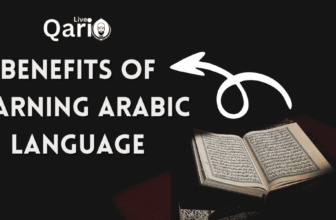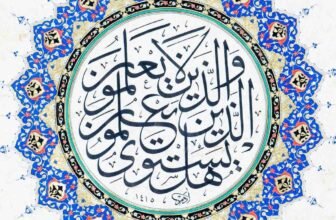
what is Arabic language?
Arabic is a widely used language in the Semitic family. More than 300 million people have Arabic as their main language, and it’s used a lot in over 20 countries. Arabic’s unique script, written from right to left, and its 28-letter alphabet are notable features.
The language is recognized for its extensive vocabulary and intricate grammar. Arabic dialects vary significantly across regions, but Modern Standard Arabic acts as a lingual bridge, commonly used in formal and media contexts throughout the Arab world.
Arabic Language started with nomadic tribes in the Arabian Peninsula a long time ago. With over 1500 years of history, Arabic has been instrumental in knowledge preservation and dissemination, particularly during the Islamic Golden Age. It has made substantial contributions to diverse fields like science, mathematics, philosophy, and literature.

Importance of Arabs language in the Contemporary World
Cultural Impact and Meaning
Arabic holds significant importance today, notably as the language of the Quran and for its deep connection to Islamic culture. This confers a special significance to Arabic among the world’s Muslim population, which exceeds a billion.
Geopolitical Influence
The Arab world, predominantly Arabic-speaking, holds considerable geopolitical interest. Many countries where Arabic is spoken are rich in oil and natural gas, which positions them as important figures in global business and politics.

Global Communication
In an era of increasing globalization, Arabic has become a crucial language in international relations and global communication. Mastery of Arabic opens doors to cultural exchanges, diplomatic endeavors, and international commerce.
Educational and Literary Impact
Arabic boasts a rich tradition in literature, spanning from classical poetry to contemporary works. It also holds historical importance in science and philosophy, where medieval Arabic scholars contributed significantly.
Cognitive and Linguistic Benefits of Language of Arab
Learning Arabic can enhance cognitive skills, including memory and problem-solving abilities. It also offers insights into a rich and diverse culture, promoting understanding and appreciation of different perspectives.
By exploring these facets, we gain a comprehensive understanding of the Arabic languages historical roots, structural complexity, and its enduring importance in modern times.
If you want to Learn Arabic Language Join Our Best Arabic Language Course on Qari.live.
Arabic Language History
Early History
Arabic started with wandering tribes in the Arabian Peninsula and dates back to at least the 1st century CE. As these tribes spread across the Middle East and North Africa, Arabic went with them, gradually evolving and establishing itself in these regions.
Evolution Over Centuries
Over time, Arabic evolved significantly. In the 7th century, Islam’s growth changed Arabic a lot because it became the language of the Quran. As the Islamic Empire expanded, Arabic became widely spoken in the Middle East, North Africa, and parts of Europe. This made different dialects, shaped by local languages and cultures, to develop. In addition to spoken changes, Arabic script and literature also flourished, impacting art, science, and philosophy. Today, Modern Standard Arabic, a standardized form of the language, is used in formal settings and media, while regional dialects remain vibrant in daily communication.
The Structure of Arabs language
Alphabet and Script
Arabic uses a unique script and has an alphabet of 28 letters. Arabic is written from right to left, unlike many other languages. The script is known for its cursive flow, where most letters change form depending on their position in a word.
Grammar and Syntax
Arabic grammar and syntax are complex. The language is highly inflected, meaning that the form of words changes to express tense, case, mood, and gender. Sentence structure in Arabic can vary, but typically follows a Verb-Subject-Object order.


Different types and styles
Arabic has many regional dialects, each distinct in pronunciation, vocabulary, and grammar, varying significantly across the Arab world. Modern Standard Arabic is the standardized form used in formal settings, like media and education, and is understood across the Arab world. This diversity in dialects reflects the rich cultural and historical tapestry of the regions where Arabic is spoken.
Arabic languages Role in Literature and Culture
Traditional Arabic Literature
Classical Arabic literature, diverse and abundant, has a history spanning over a thousand years. It includes famous works like the “One Thousand and One Nights,” a collection of Middle Eastern folk tales. Poetry is also important in Arabic literature, covering a wide range of themes like love, mysticism, heroism, and philosophical ideas.
Arabic in Contemporary Culture
In modern times, language of Arab continues to influence literature, music, art, and cinema in the Arab world. Contemporary Arabic writers and poets are known for blending traditional themes with modern issues, contributing significantly to global literature.
Impact on Different Languages
Arabic Language has greatly influenced many languages, especially in the Islamic world. Arabic has introduced numerous words into various languages, including Persian, Turkish, Hindi, and even European languages like Spanish and Portuguese. This influence can be observed in different areas, ranging from science and philosophy to food and architecture.
Learning Arabic: Challenges and Rewards
Difficulties Faced by Learners
Learning Arabic can be challenging for several reasons. First, its script and writing style, which flow from right to left, are unique and can be difficult for learners accustomed to other scripts. Arabic also has sounds that are not found in many other languages, making pronunciation a hurdle for new learners. Furthermore, the intricate grammar and syntax of Arabic, encompassing gender distinctions, case endings, and varied verb conjugations, contribute to its learning complexity. Additionally, the extensive range of dialects leads to significant variations in spoken Arabic across different regions, posing a challenge for learners.
Benefits of Learning Arabic
Despite these challenges, learning Arabic offers many rewards. Learning Arabic provides a key to a vast cultural treasure trove, spanning literature, poetry, and philosophy. Arabic is a key for those interested in history, religion, and art, opening doors to lots of knowledge and resources.
Additionally, proficiency in Arabic can be beneficial for careers in diplomacy, global business, and commerce, particularly in regions like the Middle East and North Africa. Additionally, the cognitive gains from mastering Arabic include enhanced memory and sharper problem-solving abilities. Lastly, it can serve as a bridge for cultural understanding and exchange, fostering global connections and empathy.
Arabs in the Digital Age
Arabic on Internet
Arabic Language boasts a substantial footprint in the digital world. Ranking among the most widely used languages on the internet, it has seen a swift increase in its online user base. This surge has resulted in an expansion of Arabic digital content, encompassing websites, social media, and various online materials, thereby enhancing the language’s accessibility to an international audience.
Technological Tools for Learning Arabic
Various technological tools have made learning Arabic easier and more interactive. This array encompasses language learning applications, web-based courses, and interactive sites providing instruction in Arabic reading, writing, and speaking. Furthermore, there are online Arabic dictionaries, platforms for language exchange, and discussion forums, all aiding learners in immersing themselves in both the language and its rich culture. These tools cater to different learning styles and proficiency levels, making Arabic more approachable for learners worldwide.
The Role of Arabic Language in Global Communication
The Role of Arabic in Global Diplomacy
Arabic holds significant importance in international matters, notably in the Middle East and North Africa. It’s the main language of many countries and the Arab League, making it key for diplomatic talks. Knowing Arabic also helps in understanding the culture and politics of Arab countries, which is important for good diplomacy and making international policies.
Arabic’s Influence in Business and Trade
In business, Arabic is becoming more important because countries that speak Arabic, especially those with oil and natural resources, are economically powerful. Knowledge of Arabic can be a significant asset for businesses looking to operate or expand in these regions. It facilitates better communication with local partners, understanding of market dynamics, and insights into consumer behavior in Arabic-speaking markets.
Final Thoughts
Arabic is an old language that’s really important in world culture and talking to each other. It started in the Arabian Peninsula and now it’s big in stories, talking between countries, and business, especially in places like the Middle East and North Africa. In today’s digital age, Arabic’s prominence has grown, facilitated by technological advancements that ease its learning. Learning Arabic not only offers linguistic skills but also opens doors to a rich cultural and intellectual heritage, making it an invaluable asset in our interconnected world.
FAQ’s(Frequently Ask Questions)
Is Arabic a language?
Yes, Arabic is mainly spoken in the Middle East and North Africa.
How many words are in the Arabic language?
The Arabic language boasts more than 12 million words, though the precise count may differ.
How old is the Arabic language?
Arabic is more than 1,500 years old and first appeared around the 6th century.
What language do Arabs speak?
Arabs primarily speak Arabic in its various dialects.
How hard is the Arabic language to learn?
Mastering Arabic might be difficult because of its distinct writing system and complex grammar, particularly for those who aren’t native speakers.
People Also Ask
No, Arabic is not a tonal language; meaning does not change with pitch.







